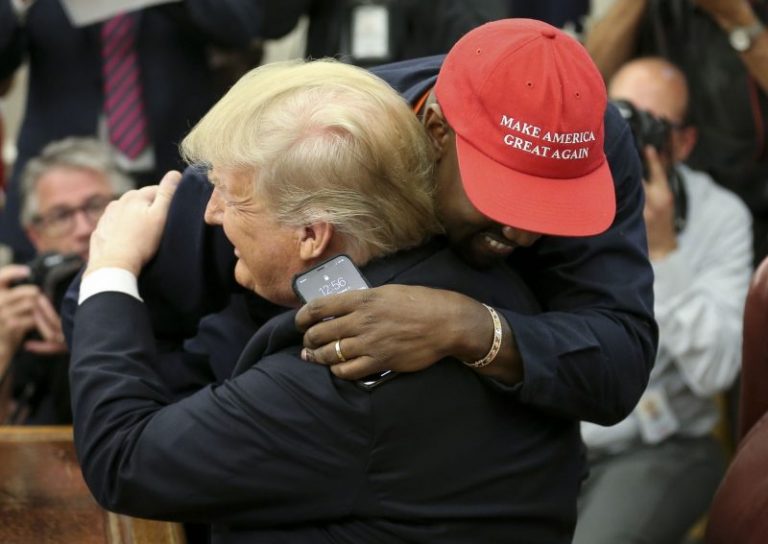YouGov, conducting a poll on behalf of Yahoo News, asked Americans how they viewed Donald Trump and race in light of the former president’s recent Mar-a-Lago dinner with the rapper Ye and antisemite and white supremacist Nick Fuentes.
While not surprising, the results are nonetheless revealing about how Trump’s approach to issues of race and discrimination continues to find space within the Republican Party.
At the outset of the poll, YouGov asked respondents whether they viewed Trump favorably or unfavorably. The wording here is important. Since Trump isn’t in office, this is not a measure of how Trump influences politics or policy. Instead it is a straightforward measure of views of Trump himself.
About three-quarters of Republicans view him favorably, a bit less than half very favorably.
This is about in line with other recent polls, including from YouGov. Trump’s favorability within his party has declined in recent months but he still enjoys favorable opinions from most members of the GOP.
YouGov went on to ask whether respondents thought Trump ever associated with racists. This question is coming before any questions about Fuentes, so this is a measure of the respondent’s impression of Trump before being primed with information about that dinner. Most Americans — including most Democrats and independents — think Trump does sometimes associate with racists. A plurality of Republicans said he didn’t.
But notice how few Republicans have opinions on the question relative to the Democrats and independents. A third of Republicans said they were “not sure” if Trump does this — a response that can be a safe harbor for those not wishing to opt for the negative choice in a question regarding a politician they support.
Before asking respondents how they viewed Trump’s dining with West and Fuentes, YouGov asked a deeply revealing set of questions. They focused on the extent to which Americans viewed antisemitism, racism against Black people and racism against White people as a problem.
Republicans were much more likely to say racism against White people was at least somewhat a problem than they were to say the same of antisemitism or anti-Black racism. (The vertical dotted line indicates the extent to which Republicans say anti-White racism is a problem.)
This is not a new finding. Even before Trump was elected in 2016, it was obvious that concern about the perceived diminishment of status Whites in American culture drove a significant part of his support. Over and over, polling showed that Republicans, and Trump supporters in particular, were more worried about anti-White discrimination than discrimination against minority groups.
In this specific context, of course, those questions take on a different color. Here’s Trump sitting down for dinner with Ye and Fuentes, the former of whose comments about Jewish people had generated scores of headlines even before the meal. Yet about a third of Republicans said they approved of Trump dining with Ye — with another third again saying they weren’t sure.
Most people hadn’t heard of Fuentes. But once informed of his more egregious comments, plucked from a deep reservoir of contenders, even most Republicans said that they disapproved of Fuentes joining Trump at dinner.
Three in 10 Republicans said they weren’t sure whether they approved, after being told that Fuentes had said, for example, that “the Jews had better start being nice to people like us, because what comes out of this is going to get a lot uglier for them.”
After describing Trump’s encounter with Ye and Fuentes and Trump’s effort to explain it away, YouGov asked respondents whether their opinion of Trump had been changed. Two-thirds of Republicans said their opinion of the former president remained the same.
Perhaps there was more erosion of support than the respondents recognized or were willing to admit. Or perhaps, a part of supporting Trump in the year 2022 is believing that antisemitic behavior is less worrisome than anti-White behavior. Perhaps those who were concerned about Trump’s responses to these questions had walked away from him years ago.

